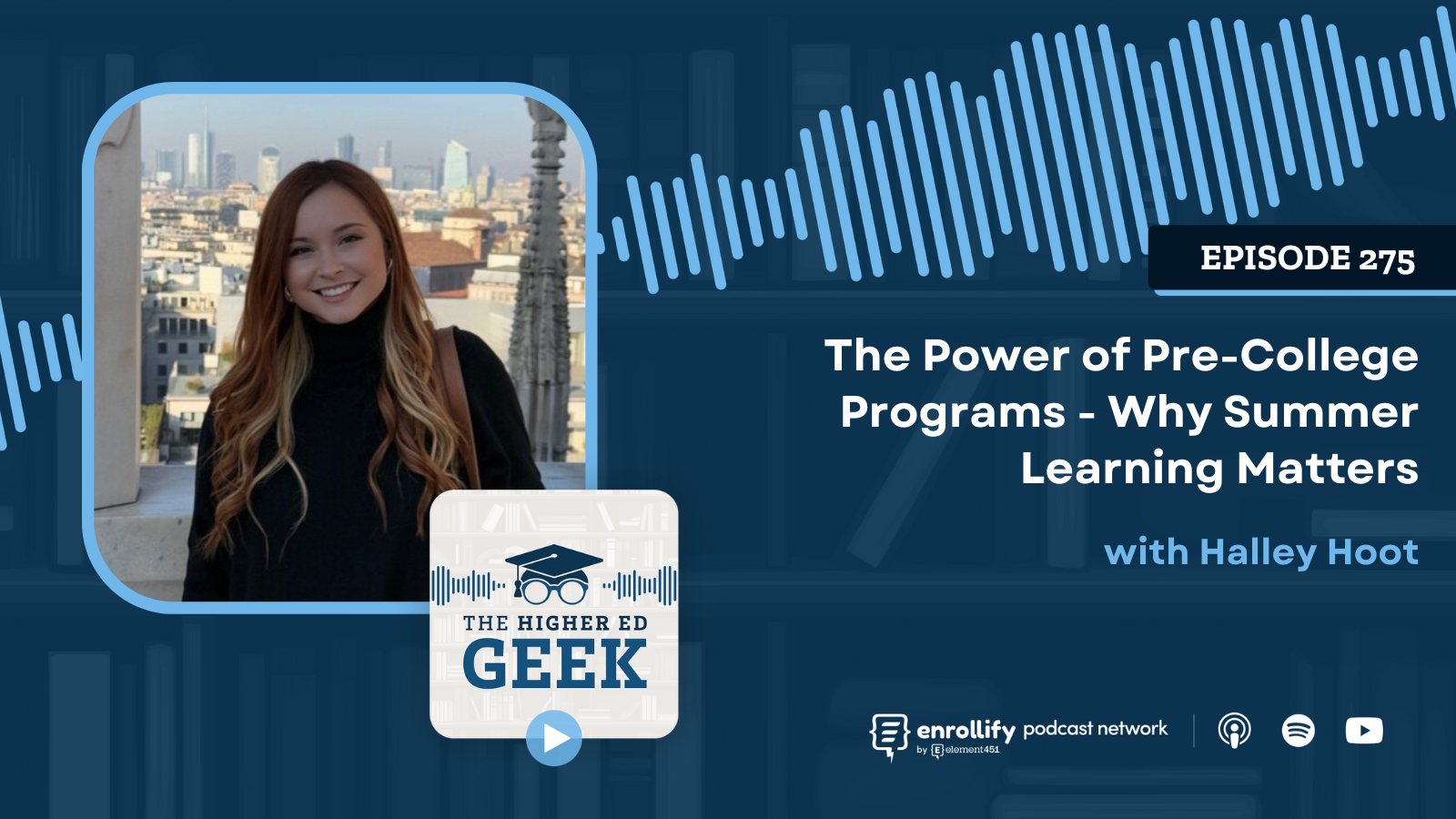About the Episode
About the Episode:
Jamie and Timothy dig through the 2024 Trends in Higher Education report from Hanover Research to discover how employers feel about higher ed. From one study cited, 45% of employers plan to cut bachelors degree requirements for some of their positions. Another study cited shows that 8 of 10 employers think higher education prepares students for the workforce. What gives?
Key Takeaways
- Degrees vs. Skills: Employers increasingly value specific skills over traditional degree requirements, prompting some to relax degree mandates for certain positions.
- Persistent Value of Higher Education: 80% of employers still believe that higher education effectively prepares students for success in the workforce.
- Changing Demographics and Attitudes: Younger professionals (<40) express stronger support for the value of higher education compared to older demographics.
- Diverse Industry Trends: Perceptions of higher education vary widely across industries, with tech and telecom showing strong alignment with higher education.
- Critical Reading of Research: Comparing studies and digging into methodology is vital for understanding nuanced trends in higher ed and workforce dynamics.
Episode Summary
Why Are Employers Dropping Bachelor’s Degree Requirements?
Jamie and Timothy begin by discussing the Hanover Research finding that 45% of companies plan to eliminate bachelor’s degree requirements for certain roles in 2024. While this might seem like a dismissal of higher education’s importance, the hosts clarify that it reflects a broader trend toward prioritizing specific skills and diversifying hiring pipelines. Many companies are adopting a skills-first approach, opening opportunities for candidates with alternative credentials, experience, or industry-specific training.
How Do Employers Still See Value in Higher Ed?
The conversation shifts to the finding that 80% of employers agree higher education prepares students for workforce success. Timothy points out that these two statistics come from separate studies—one by Hanover Research and the other by the American Association of Colleges and Universities (AAC&U). This suggests that while employers recognize the value of a degree, some are rethinking the degree as the only pathway to workforce readiness.
Jamie highlights an intriguing detail from the AAC&U study: younger employers under 40 are more likely to strongly agree that higher education is worth the investment. This generational divide challenges common assumptions and suggests that traditional pathways may still hold appeal for younger decision-makers.
What Do Industry Trends Tell Us?
Breaking down industry-specific trends, Timothy notes that industries like technology, telecom, and finance continue to value higher education, while trade-heavy fields like manufacturing and construction are more likely to explore alternative credentials. The discussion underscores the importance of tailoring educational offerings to industry needs, including stackable credentials and targeted workforce development programs.
Jamie notes the increasing popularity of graduate programs even as undergraduate enrollment sees declines. This shift signals a changing value proposition for higher education, with professionals seeking advanced credentials to boost career prospects in competitive industries.
How Can Higher Ed Adapt to Workforce Needs?
The hosts agree that institutions must respond proactively to these trends by aligning curricula with workforce demands. Programs that integrate experiential learning, industry partnerships, and skills-based credentials can help bridge the gap between education and employment. Timothy emphasizes the importance of data literacy—both in evaluating reports like Hanover’s and in designing institutional strategies based on actionable insights.
Connect With Our Co-Hosts:
About The Enrollify Podcast Network: The EduData Podcast is a part of the Enrollify Podcast Network. If you like this podcast, chances are you’ll like other Enrollify shows too!
Some of our favorites include Generation AI and The Higher Ed Geek.
Enrollify is produced by Element451 — the next-generation AI student engagement platform helping institutions create meaningful and personalized interactions with students. Learn more at element451.com.
Element451 is hosting the AI Engage Summit on Oct 29 and 30. Register now for this free, virtual event.The future of higher ed is being redefined by the transformative power of AI. The AI Engage Summit brings together higher ed leaders, innovators, and many of your favorite Enrollify creators to explore AI’s impact on student engagement, enrollment marketing, and institutional success.
Experience firsthand how AI is improving content personalization at scale, impacting strategic decision-making, and intuitively automating the mundane tasks that consume our time. The schedule is packed with real examples and case studies, so you leave knowing how to harness AI to drive meaningful change at your institution.
Whether you’re looking to enhance student outcomes, optimize enrollment marketing, or simply stay ahead of the curve, the AI Engage Summit is your gateway to the next level of higher education innovation. Registration is free, save your spot today.







.png)







